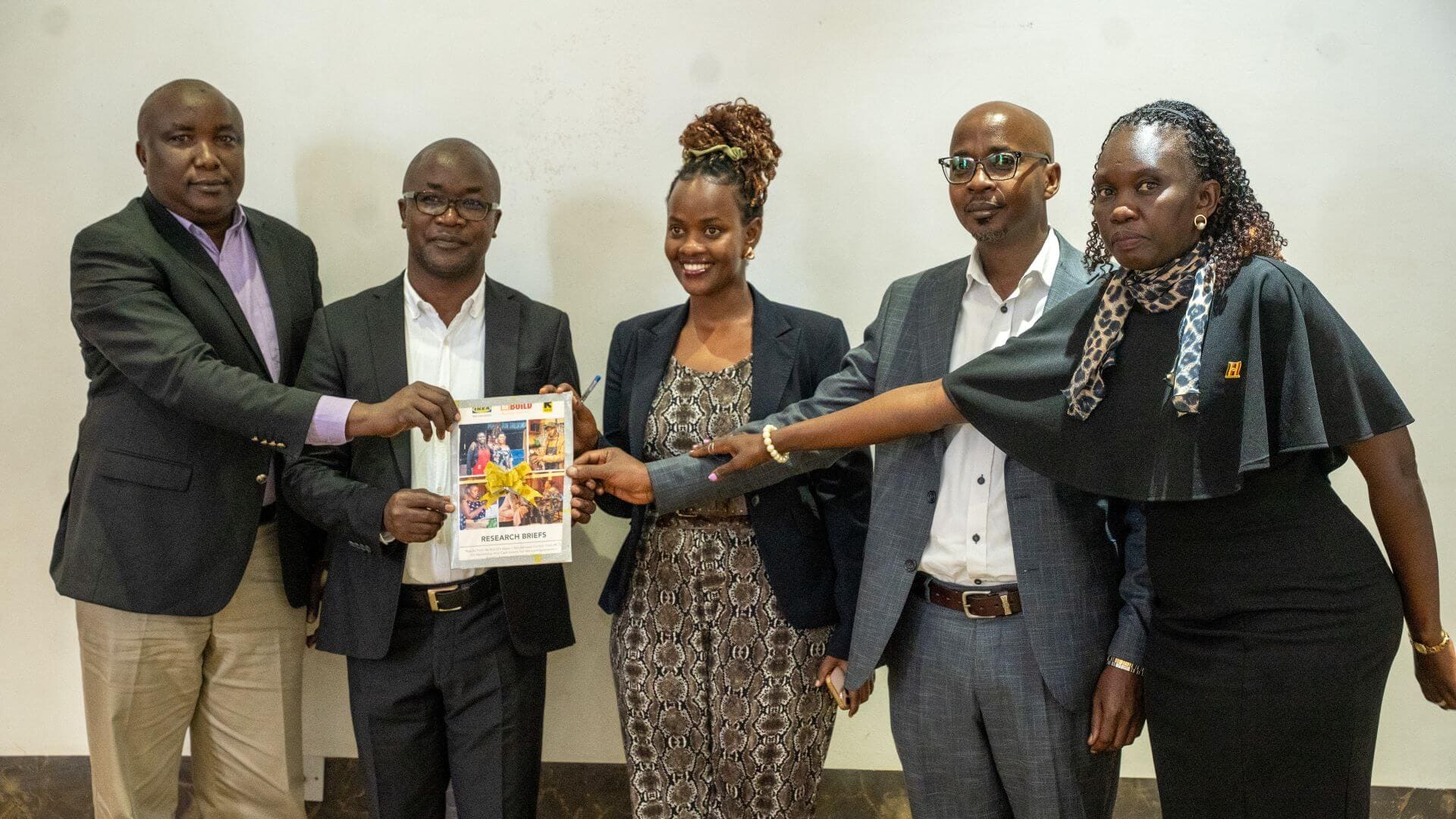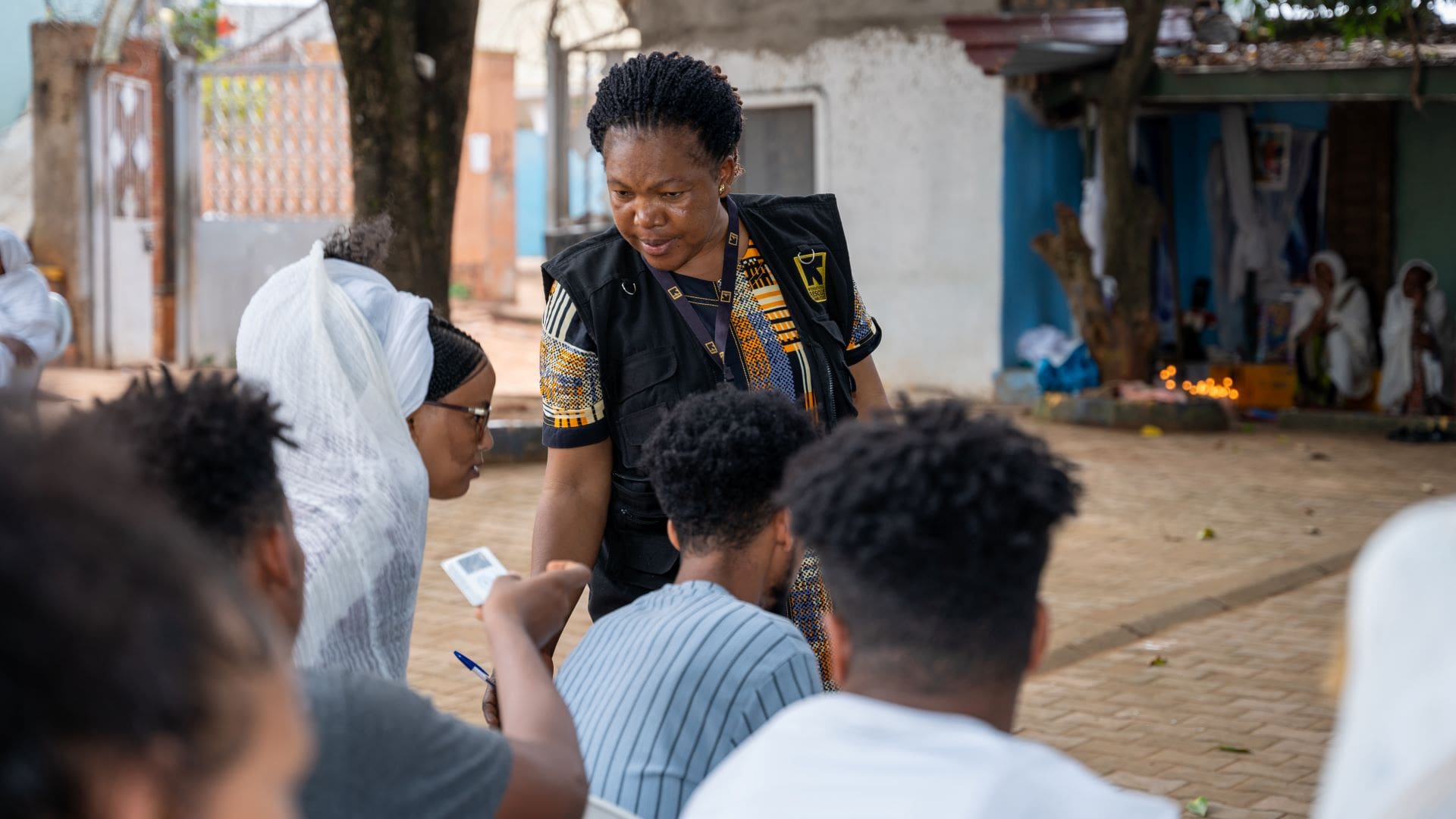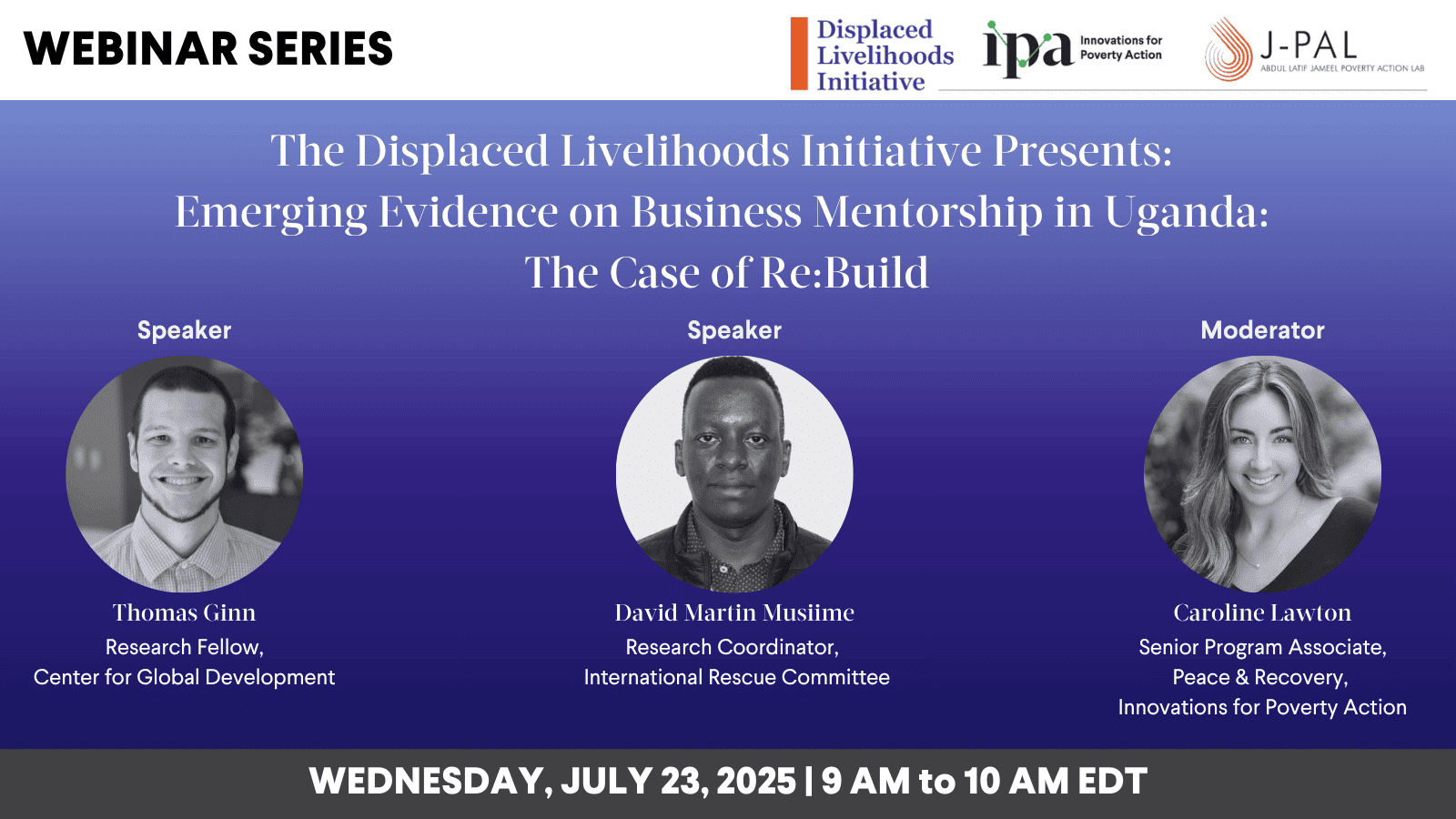What the 12th World Urban Forum Means for People Affected by Conflict in East African Cities
What the 12th World Urban Forum Means for People Affected by Conflict in East African Cities
What the 12th World Urban Forum Means for People Affected by Conflict in East African Cities
By Jamin Kusuania and Irene Shiundu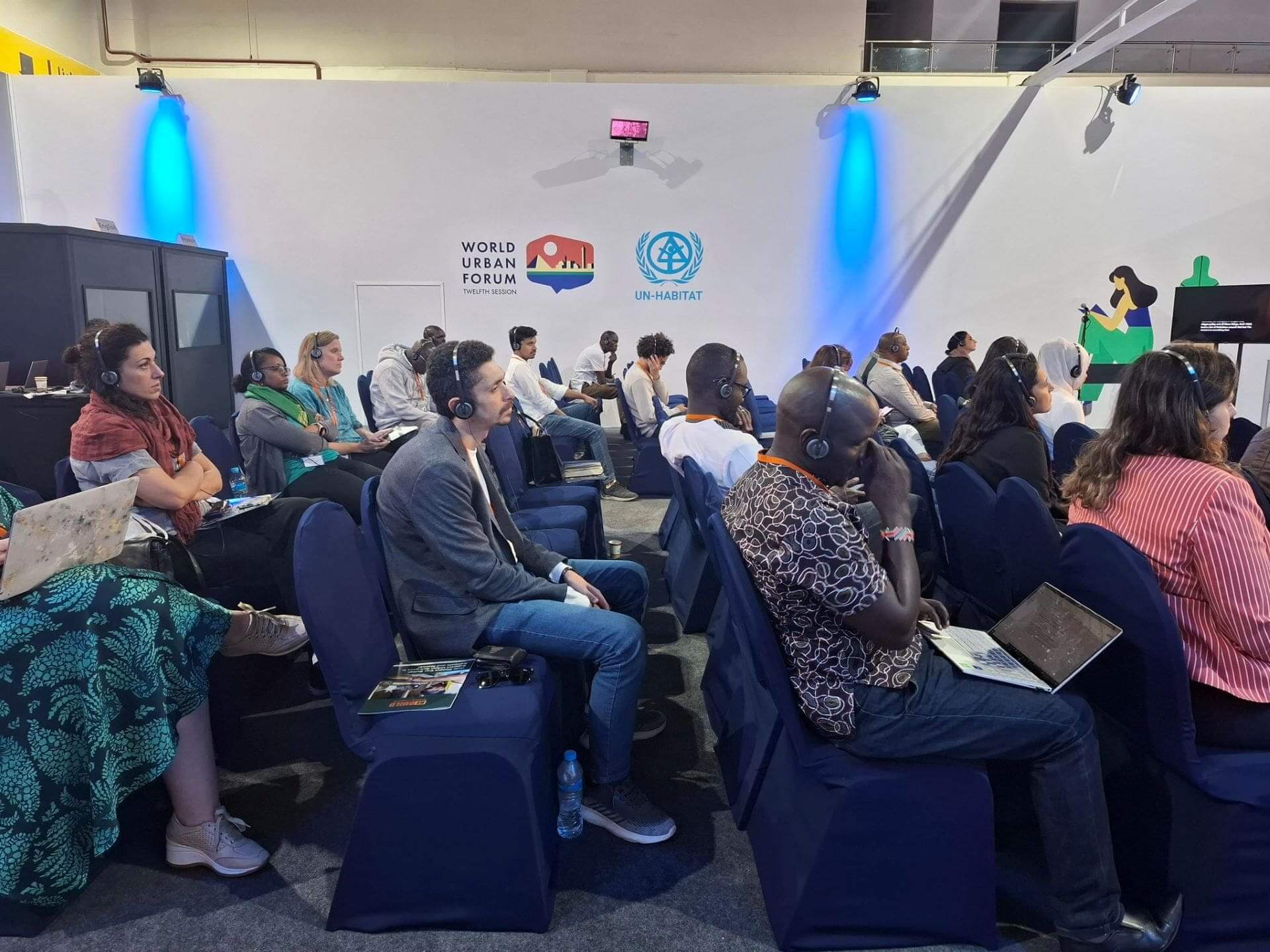
November 7, 2024, Cairo, Egypt. The IRC's Re:BUiLD program hosted a side event during the WUF12 titled "Supporting the Integration of Refugees in Cities." This event brought together policymakers, practitioners, refugees, researchers, and donors to discuss the unique challenges urban-based refugees face and explore how various actors can better support them. Contributors: Irene Shiundu, Jamin Kusuania and Nathan Ijjo Tibaku
The Twelfth Session of the World Urban Forum (WUF12), held from November 4-8, 2024, in Cairo, Egypt, was a landmark event that brought together over 63,000 participants from 182 countries. This forum provided a critical platform for discussing sustainable urbanization and the challenges urban communities face worldwide. WUF12 offered significant insights and potential pathways to East African cities on improving living conditions and integrating urban displacement communities into urban governance by providing key lessons from across the globe on displacement inclusion.
Learnings from IRC side event
The IRC's Re:BUiLD program hosted a side event during the WUF12 titled "Supporting the Integration of Refugees in Cities." This event brought together policymakers, practitioners, refugees, researchers, and donors to discuss the unique challenges urban-based refugees face and explore how various actors can better support them. One of the key points raised during the event was ensuring that refugees have a genuine voice in shaping policies and accessing services that directly affect them.
The forum acknowledged that East African cities, such as those in Uganda, Kenya, and Ethiopia, host large populations of refugees and internally displaced persons (IDPs) due to ongoing conflicts and instability with Uganda and Kenya hosting about 2.4 million refugees. The contribution forum highlighted the potential for migration and displacement to boost productivity and enhance local economic development with discussions focusing on establishing scalable, sustainable solutions for integrating displacement affected communities into urban development strategies.
Refugees in East African cities face numerous challenges, including housing insecurity, limited access to services, social integration issues, and economic vulnerability. Many live in informal settlements with inadequate housing conditions and struggle to access essential services like healthcare, education, and employment. Additionally, refugees may face discrimination and social exclusion, making it difficult for them to integrate into the local community.
Urban planning plays a crucial role in addressing these challenges. Effective urban spatial planning and integrated territorial planning can improve housing conditions by developing inclusive housing policies and upgrading informal settlements. It can enhance access to services by ensuring that essential services such as healthcare, education, and public transportation are accessible to all residents. Inclusive urban planning can promote social cohesion by creating public spaces that encourage interaction and community building. Additionally, urban planning can boost economic opportunities by facilitating economic development and supporting local businesses.
Re:BUiLD commitment to Scale Systems
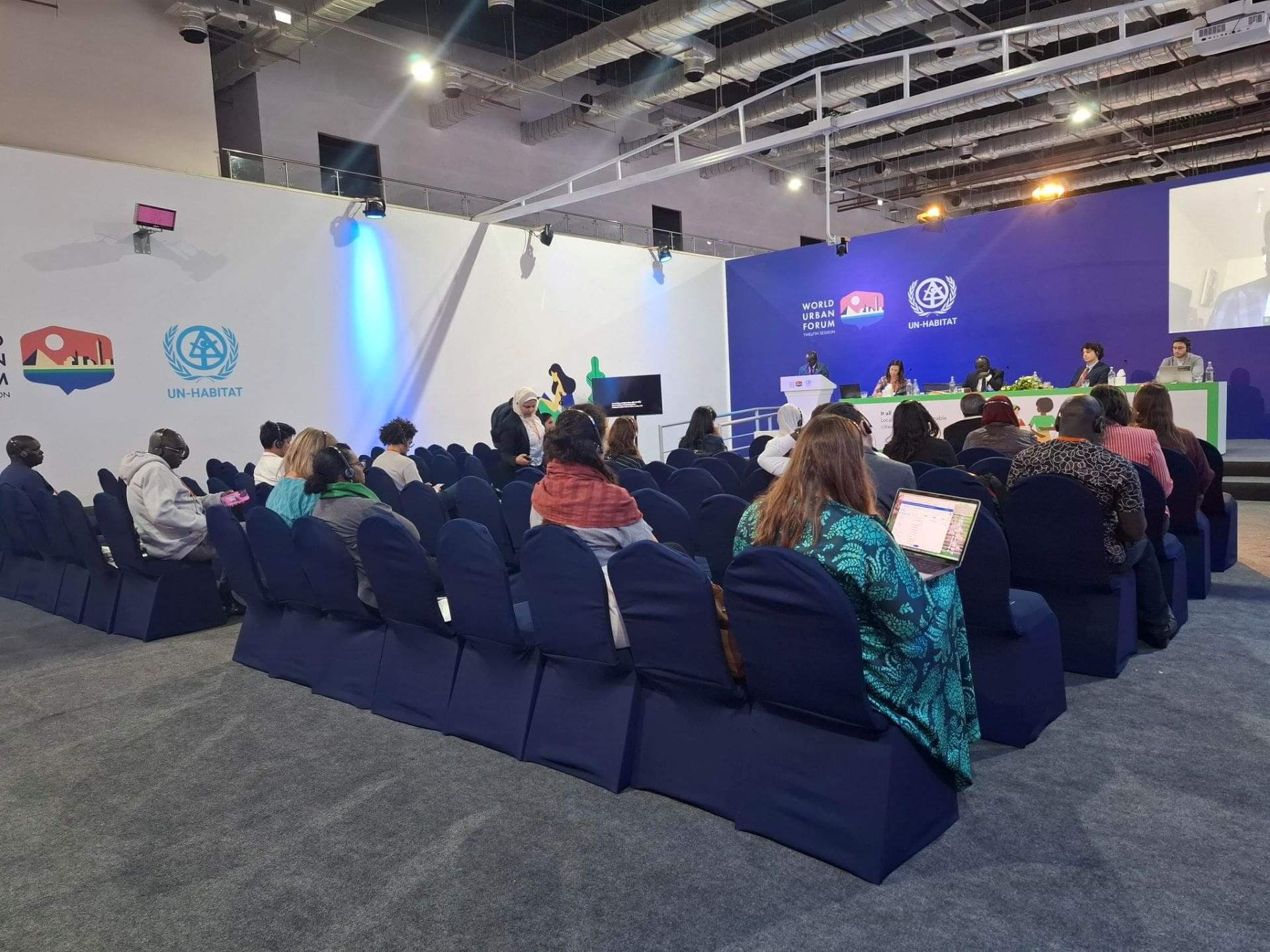
November 7, 2024, Cairo, Egypt. Jamin Kusuania, IRC Advocacy Manager, leading World Urban Forum side event focusing on supporting the integration of refugees in cities during the 12th World Urban Forum.
At the beginning of this year, a team from the Re:BUiLD program, Nairobi City County Government (NCCG), and Kampala City Council Authority (KCCA) visited Koboko Municipality, in North Western Uganda and a rapidly growing destination for refugees in West Nile. Koboko Municipal Council (KMC) is spearheading great initiatives to ensure access to services and social cohesion among residents and refugees. More details on that can be accessed During the WUF12 side event, the Mayor of Koboko Municipal Council, Dr. Wilson F. Sanya, shared insights on successful collaboration between local and national governments. He highlighted efforts and transition plans to integrate refugees into Koboko's five-year development plans, demonstrating how development actors can ensure their interventions are effective for displaced populations. Re:BUiLD is fast-tracking the sharing of lessons from KMC for adoption by city authorities like NCCG and KCCA, focusing on partnerships with Civil Society Organizations (CSOs) and Refugee Leaders Organizations (RLOs), capacity strengthening for partners, and direct investment in city authorities.
“The fifth year of the Re:BUiLD program presents a critical opportunity for NCCG and KCCA to operate as direct implementing partners to assume direct responsibility for key activities that will embed refugee support within city structures, systems, and policies, assuring sustainability and scalability,” said Irene Shiundu, Public Engagement and Advocacy Coordinator for the Re:BUiLD. She added, “Scaling requires reaching more refugees by various city sectors, fostering economic empowerment, social cohesion among refugees and host communities, and policy engagement, and institutionalizing capacity building within city platforms.”
By integrating refugee services into Kampala’s and Nairobi’s governance and social systems, the cities will better manage growing demands, enhance service delivery, and provide refugees with the tools for long-term self-reliance. To actualize this goal, NCCG and KCCA have developed a strategic concept and work plan to implement the key activities:
Key takeaways relevant to East African cities
The WUF12 emphasized several action points. There is an urgent need to manage the housing crisis and secure financing for better urban planning, land use, and sustainability. Sharing and learning from existing practices can accelerate action, and partnerships are crucial for influencing policy change and creating an enabling environment for sustainable urban development. The forum also highlighted the importance of promoting social cohesion and inclusivity through urban planning and design, addressing environmental sustainability concerns, and ensuring that displaced populations have access to adequate housing and services.
The WUF12 concluded with the Cairo Call to Action, reaffirming the commitment to promote sustainable urbanization through the New Urban Agenda and the 2030 Agenda for Sustainable Development. For East African cities, this call to action urges empowering local actors through effective localization and meaningful collaboration among all stakeholders. It also emphasizes the importance of participatory urban planning to deliver resilience, accessibility, and sustainability in cities, and the need to unlock finance to address the urgent financing gap for urban development.
